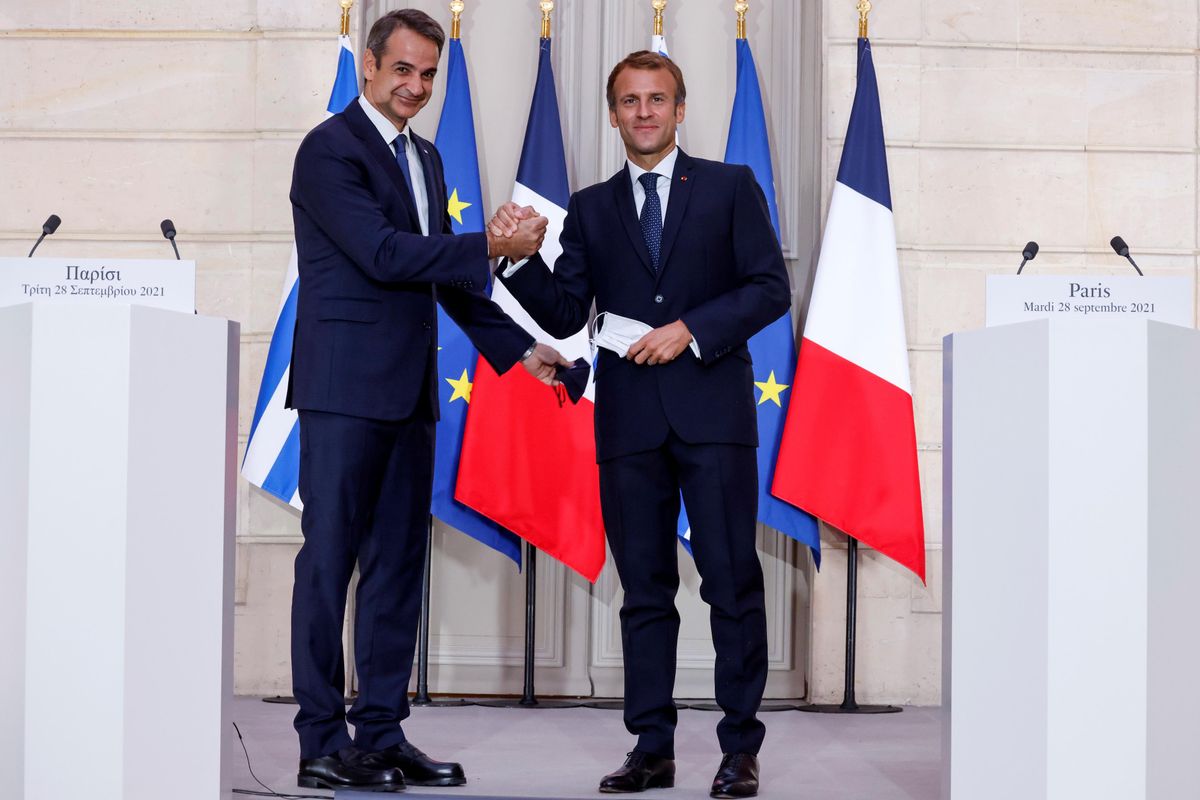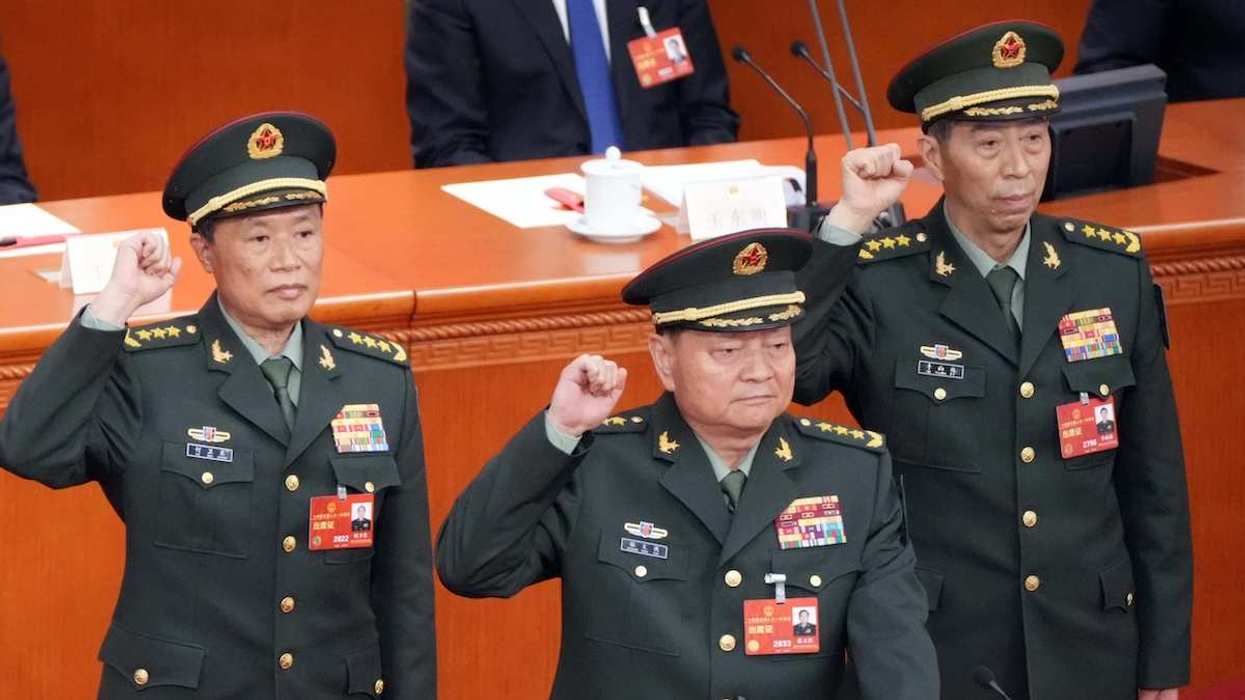France gets a post-AUKUS win: Greece and France have inked a $5 billion deal for Athens to buy at least four French-made warships. French and American contractors had been in a bidding war since 2019, when Greece announced it was looking to buy half a dozen naval attack vessels. For French President Emmanuel Macron, it was a much-needed win after the recent AUKUS debacle, when the US froze Paris out of a security pact with Australia and the UK, nixing a contract for Australia to buy French submarines. At the signing ceremony in Paris, Macron and Greek PM Kyriakos Mitsotakis touted the deal as a move towards European "strategic autonomy" (since coming to power in 2017, Macron has been a strong advocate of Europe pursuing a defense strategy independent from the US). Greece, for its part, has also been looking to boost its own military capabilities amid deteriorating relations with longtime foe Turkey over competing maritime claims in the Eastern Mediterranean.
Haiti's election postponed until next year: Haiti will no longer hold a general election in November, after PM Ariel Henry dismissed the nine-member Provisional Electoral Council, an extremely unpopular body among politicians and the public that's responsible for executing presidential and parliamentary votes. It's the fourth time the planned election has been stalled, and comes as the country is experiencing a full-blown social and economic implosion since the assassination of President Jovenel Moïse in July. Haiti has long been mired in crisis, but much of the recent chaos started a year before, when Moïse tried to organize a referendum to increase his powers and bypassed the Supreme Court in appointing members to the electoral committee, causing a constitutional crisis. Henry, who has been accused of capitalizing on Moïse's death to consolidate his own power, now says that a vote on changing the referendum and elections will be held early next year, though most observers remain deeply skeptical.
Japan ends COVID emergency, gets new PM: Japan's outgoing PM Yoshihide Suga announced on Tuesday that the pandemic state of emergency currently in place across half the country will be lifted this week as Japan's once-sluggish vaccine rollout speeds up, with around 60 percent of the population now fully vaccinated. But Japan turned the tide on vaccines too late for Suga, who decided to step down less than a month ago when his own approval rating hit rock-bottom due to his very unpopular decision to hold the Tokyo Olympics amid a pandemic. Meanwhile, the race to succeed Suga within the ruling Liberal Democratic Party — which has almost always governed Japan since World War II — now has a winner. The LDP on Wednesday picked Fumio Kishida, an ex-top diplomat trusted by party insiders, as its next leader over Taro Kono, the charismatic vaccines minister who was by far the most popular among rank-and-file LDP members — yet viewed by some party leaders as too outspoken on government policies. Since the LDP dominates both houses of parliament, Kishida will become Japan's next prime minister ahead of the upcoming election in November.
















